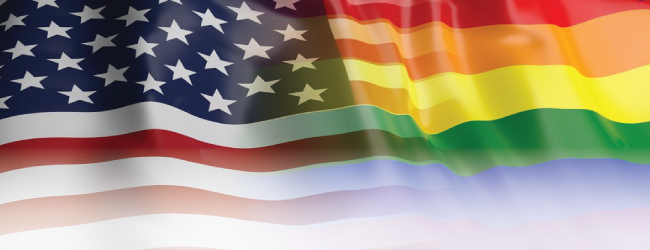
California Law Protects the Rights of LGBTQs – What You Can Do to Help Protect the Civil Rights of the LGBTQ Community and Other Victims of Bias
On November 18, 2016, U.S. Attorney General Loretta Lynch responded to reports of increased hate crimes by urging victims to report these crimes to federal authorities for possible prosecution. Attorney General Lynch re-enforced the Justice Department’s commitment to prosecuting hate crimes which are illegal under U.S. law.
In 1990, Congress passed the Hate Crime Statistics Act, which required the Attorney General to collect data “about crimes which manifest evidence of prejudice based on race, religion, sexual orientation, or ethnicity.” The attorney general delegated the responsibility to the Director of the FBI, who, in turn, assigned the task to its Uniform Crime Reporting Program (UCR). The UCR has collected hate crime statistics for 25 years from law enforcement agencies across the country. On November 14, 2016, the FBI released its 2015 Hate Crime Statistics report detailing 5,818 instances of hate crimes involving 7,124 victims of which 19.4% of the victims were targeted based on sexual orientation and gender identity bias. The FBI’s statistics estimates that two-thirds of hate crimes are not reported to law enforcement.
The Southern Poverty Law Center (“SPLC”) reports that it has received complaints of 867 post-election hate incidents from both the #ReportHate page on the SPLC website and media accounts. These incidents were limited to real-world events and exclude online harassment. SPLC explains that the underreporting problem is surely more severe when it comes to hate incidents that may not rise to the level of criminal violations. Since the election, the lesbian, gay, bisexual, transgender and queer (“LGBTQ”) community has experienced harassment by those who allege that the president-elect shares their anti-LGBTQ sentiments. SPLC reports that harassment of LGBTQ individuals has been reported across the country, making up 11% of all reported incidents. A common refrain in anti-LGBTQ harassment is the threat of rescinding the constitutional protections of same-sex marriage. LGBTQ children have not escaped harassment in the wake of the election. Churches that performed same-sex marriages or have banners advertising inclusivity have also been targeted in the wake of the election. The FBI and SPLC’s statistics show that hate violence is a prevalent and deadly issue faced by the LGBTQ community.
1. Report all instances of hate crimes.
Encourage all victims to report hate crimes to their local law enforcement agency. Victims of hate crimes should also be encouraged to also report hate crimes to the FBI and Department of Justice.

California’s hate crime statutes, beginning with Penal Code Section 422.55 impose additional punishment for harming, threatening or harassing someone because of the person’s disability, gender, nationality, race, ethnicity, religion or sexual orientation. California’s hate crimes laws have two major components: First, Penal Code Section 422.6 makes it a stand-alone crime to interfere with another’s civil rights, or damage or destroy another’s property because that person has one of the characteristics set forth above. Secondly, Penal Code Section 422.7 and Penal Code Section 422.75 provide that if you commit a crime such as assault or vandalism, and you are motivated in part by the fact that the victim has one of the characteristics in the list above, your criminal offense will be considered a “hate crime” and you may receive an enhanced sentence.
2. Employment and Housing, Public Accommodations, Hate Violence and Human Trafficking.
In 2003, Governor Davis signed AB 196. AB 196 clarified for the purposes of California’s Fair Employment and Housing Act (FEHA) that discrimination in housing and employment based on “sex” includes discrimination based on gender. In 2011, Governor Brown signed the Gender Nondiscrimination Act (AB 887). The Gender Nondiscrimination Act directly added “gender identity” to the list of protected classes.
The Department of Fair Employment and Housing (“DFEH”) is charged with enforcing California’s civil rights laws. DFEH’s mission is to protect the people of California from unlawful discrimination in employment, housing and public accommodations, hate violence and human trafficking.
As an attorney, you can help a victim of discrimination by preparing and filing a pre-complaint inquiry with the DFEH. The DFEH can be reached at 800-884-1684 (voice), 800-700-2320 (TTY), California’s Relay Service at 711 and by email at center@dfeh.ca.gov.
A victim of discrimination is in most cases required to contact the DFEH within one year of the incident constituting discrimination and file a form titled pre-complaint inquiry. Within 60 days, the complainant and his or her counsel will be contacted by an investigator to discuss the details of the complaint including evidence supporting the complaint. The DFEH will evaluate the evidence and decide whether to accept the case for further investigation. If the DFEH decides to accept the case, it will prepare a complaint form for the complainant’s signature. When the complainant returns the signed complaint to the DFEH, it will be delivered by the DFEH to the respondent.
The respondent is required to answer the complaint and the DFEH will review the answer with the complainant. The DFEH offers free dispute resolution services. When parties can’t resolve a complaint, the DFEH continues an investigation to determine if a violation of California law occurred. If the DFEH finds there were probable violations of the law, the case moves into DFEH’s Legal Division. At that time, the parties are required to go to mediation. At mediation, the parties have the opportunity to reach an agreement to resolve the dispute and close the case. If the mediation fails, DFEH may file a lawsuit in court.
As attorneys, we can help protect the civil rights of the LGBTQ community and all victims of hate crimes. “The best way to not feel hopeless is to get up and do something. Don’t wait for good things to happen to you. If you go out and make some good things happen, you will fill the world with hope, you will fill yourself with hope,” Barack Obama.